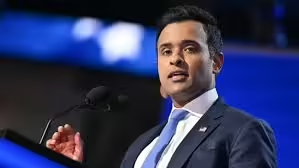
New Delhi: In a significant development, the Supreme Court of India has granted interim bail to Amar Mulchandani, the former chairman of Seva Vikas Cooperative Bank, in connection with a high-profile fraud case. This ruling was made by a three-judge bench led by Chief Justice DY Chandrachud, alongside justices JB Pardiwala and Manoj Misra.
Background of the Case
Mulchandani, who is 67 years old, was arrested on July 1, 2023, and has been behind bars for over a year. The case revolves around allegations of fraud and misappropriation of funds amounting to Rs 429 crore at the bank. His application for bail on medical grounds had previously been dismissed by the Bombay High Court in August 2024.

Medical Grounds for Bail
During the proceedings, the court emphasized the need to operate within the law, particularly when it comes to individuals who are sick or infirm. The bench reviewed a report from four medical experts at JJ Hospital in Mumbai, which indicated that Mulchandani’s health condition warranted bail. Chief Justice Chandrachud remarked, “The law tells us that someone who is sick and infirm should be granted bail.”
Legal Proceedings
The court’s decision followed a thorough examination of the medical report, which confirmed that Mulchandani met the criteria for bail as outlined in the Prevention of Money Laundering Act (PMLA). The bench noted that despite the stringent nature of the PMLA, the health concerns presented could not be overlooked.
Implications of the Ruling
In their order, the justices pointed out that the provisions of the PMLA allow for bail under such circumstances. They directed that Mulchandani be released on interim bail, subject to conditions set by the special court overseeing the case.
Ongoing Investigations
The money laundering investigation involving Mulchandani and others was initiated following multiple FIRs lodged by the Pune Police. These FIRs stemmed from complaints by the bank and findings from an audit conducted by the Registrar of Cooperative Societies, which uncovered widespread fraud that adversely affected thousands of small depositors.
This ruling by the Supreme Court highlights the balance between upholding stringent laws while also considering the humanitarian aspects related to health conditions of the accused.


